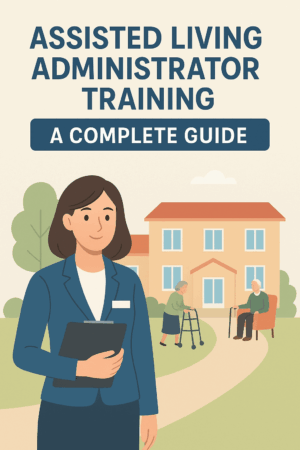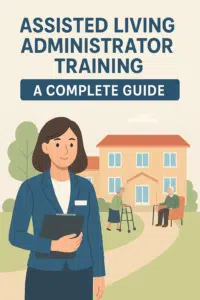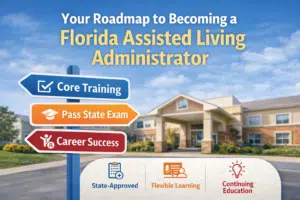
Assisted Living Administrator Training: A Complete Guide
Running an assisted living facility isn’t just about providing care—it’s about leadership, compliance, and creating a safe, welcoming home for residents. At the center of it all is the Assisted Living Administrator, the person responsible for overseeing daily operations, staff, resident care, and regulatory compliance. To take on this role, specialized training is required.
Why Training Matters
Administrators carry the weight of ensuring that the facility meets state regulations, maintains financial stability, and provides compassionate care. Proper training equips them with knowledge in:
-
State laws and compliance requirements
-
Resident rights and care standards
-
Human resource management
-
Medication management policies
-
Emergency preparedness and safety
-
Financial and operational oversight
What Training Includes
Training programs vary by state but generally cover both classroom learning and practical application. Common topics include:
-
Resident Care & Rights – Understanding aging, dementia care, and ethical responsibilities.
-
Staff Management – Hiring, scheduling, training, and team building.
-
Regulations & Compliance – Staying current with state laws, surveys, and inspections.
-
Business Operations – Budgeting, record-keeping, and financial accountability.
-
Health & Safety – Infection control, medication administration oversight, and emergency planning.
Some states also require passing an exam or completing continuing education hours annually to keep the administrator license active.
Who Needs This Training
Anyone who plans to:
-
Open or operate an assisted living facility
-
Advance into leadership roles in long-term care
-
Strengthen their knowledge of compliance and operations
Benefits of Training
-
Builds confidence in handling daily challenges
-
Prepares administrators for state inspections and audits
-
Improves resident satisfaction and quality of care
-
Enhances leadership and decision-making skills
Being an Assisted Living Administrator is both rewarding and demanding. Training ensures leaders have the tools they need to balance compliance, staff management, and resident well-being. For anyone looking to grow in this field, completing administrator training is not just a requirement—it’s a powerful investment in success.



